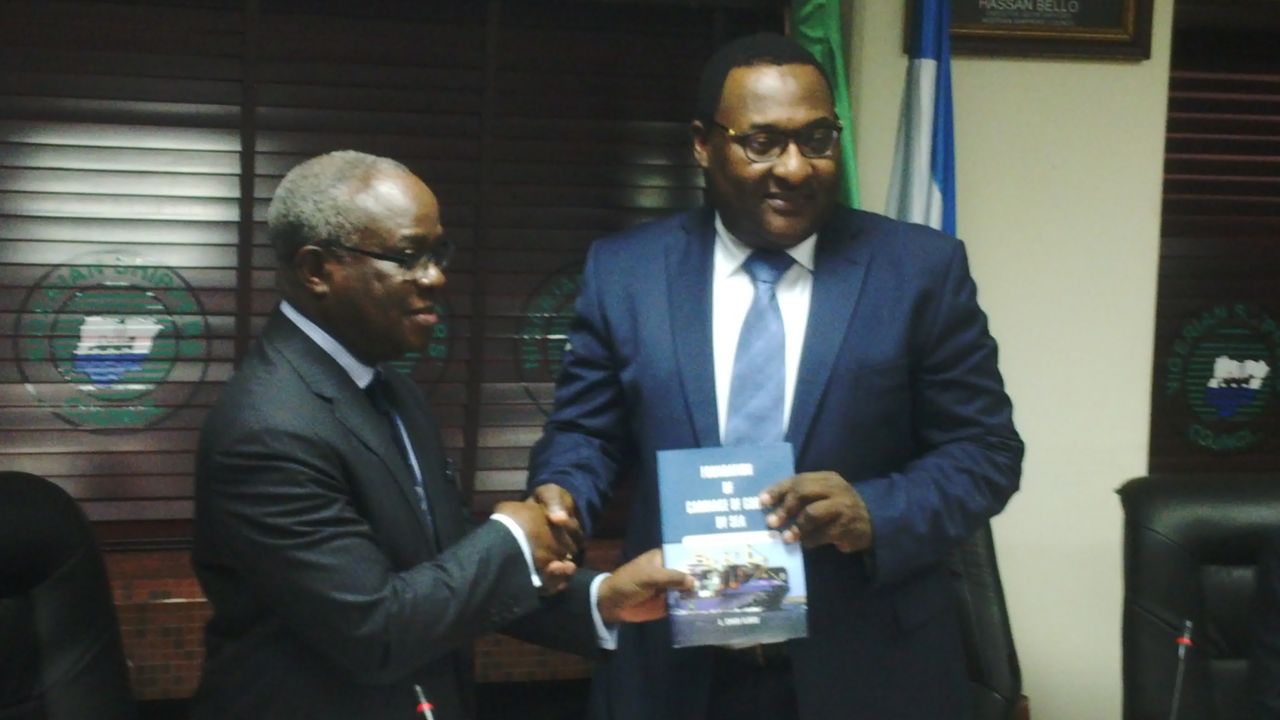Executive Secretary, Nigerian Shippers Council (NSC), Hassan Bello has called on the Nigerian Maritime Law association to support the Council’s mandate on the introduction of maritime law as a course study in Nigerian universities.
Bello made the call yesterday when members of the association led by its President, Chidi Ilogu paid a courtesy visit on him at the Shippers’ Council headquarters in Lagos.
He said the Council has been directed by the Justice of the Supreme Court, Tanko Mohammed to champion the introduction of the basics of maritime law in curriculum of all universities especially in faculty of laws in Nigeria in collaboration with the National universities commission.
“I recalled when Justice Mary Odili said there is paucity of knowledge in this area and the gaps need to be filled. He asked the shippers council to wake up to the challenge by ensuring that admiralty law becomes part of our school curriculum,” Bello said.
Bello said the council will work in collaboration with the association to ensure that some maritime laws which are moribund are reviewed to make them more dynamic and predictable to enhance the growth of the industry and to improve the ease of doing business in Nigeria.
“There are some laws that are moribund. We are going to change these laws to provide laws that are dynamic and predictable and make for economic expansion.
“The engine room of reforms in the maritime law in Nigeria has always been the Nigeria maritime law association. They have reformed a lot of laws so we are latching on to the experience and resourcefulness of the association to bring positive changes to align the maritime law to our economic advancement,” he said.
“The ease of doing business is paramount in this administration. The Shippers Council and the association will give all the necessary support so that we will have our ranking up in the ease of doing business and cost of business,” he said.
President of the association, Chidi Ilogu assured that the association would put in effort to support the initiative of including maritime laws in universities.
He said the association in collaboration with the council will work to provide the necessary legal support and the enlightenment that the national assembly will need to ensure quick passage of maritime laws.
“On lectures on maritime law, we would be happy to do that. We are actually doing a few in some of the universities and we would be happy to do more and we will do our best to support although sometimes it is not easy,” he said.
While advocating the need for training for the legislators, Ilogu said inadequate knowledge of the maritime industry is one of the reasons why some maritime bills are delayed.
” There is a barrage of issues that confront the lawmakers, they have so many draft bills they need to consider and sometimes they don’t give priority to some of those that should be given priorities and that is why we see some of these delays.
“I believe that with some enlightenment and training from the maritime industry they will give more attention to maritime bill which are actually of paramount important to the industry as at now,” he said.
Ilogu said the association would continue to partner with the Shippers Council and other government agencies to enhance the ease of doing business and move the maritime sector forward.
Also speaking, a senior advocate of Nigeria, Mike Igbokwe emphasized the need for government to review some maritime policies as well as provide a conducive atmosphere for the sector to thrive.
According to him, the sector does don’t have certain maritime policies put in place as most of the bills are still pending at the national assembly.
“We need very clear cut and specific and long time maritime policies that will be implemented and also ascertainable by foreigners and locals that intends to do any business in Nigeria. Most of the bills have been pending at the national assembly and they have not been enacted into law,” he said.
